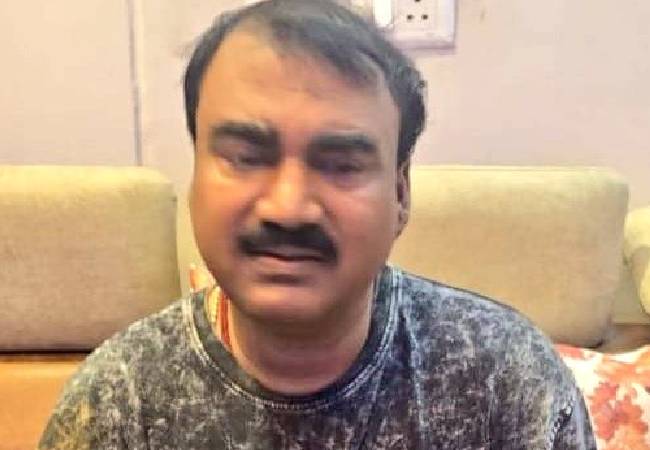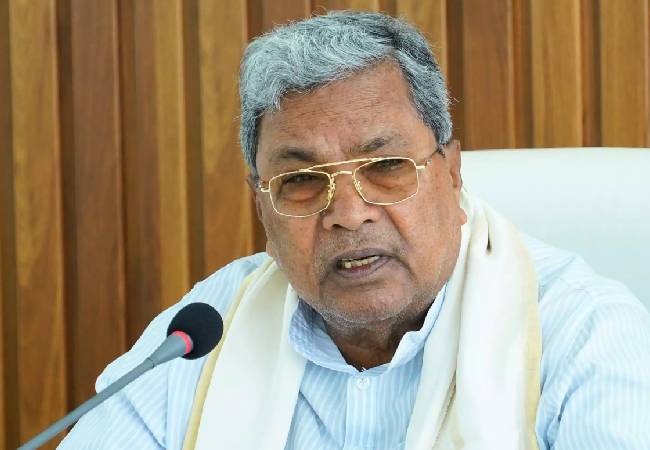New Delhi: Public Interest lawyer and activist Prashant Bhushan raised concerns over Prime Minister Narendra Modi's recent visit to the residence of Chief Justice of India (CJI) DY Chandrachud, stating it "sends a very bad signal to the judiciary." The visit, which was part of Ganesh Chaturthi celebrations, saw PM Modi and the CJI participating in the traditional aarti.
Bhushan took to social media platform X (formerly Twitter), questioning the appropriateness of the meeting. He cited the Code of Conduct for Judges, which emphasises maintaining a degree of aloofness and avoiding actions that may compromise the dignity of the judiciary.
Bhushan expressed shock at the CJI allowing the meeting, highlighting the judiciary's crucial role in protecting citizens' fundamental rights and ensuring the government acts within constitutional limits. According to Bhushan, the separation between the executive and judiciary must be upheld.
PM Modi also shared details of the visit on X, offering prayers to Lord Ganesha and extending wishes for happiness and prosperity.
Let the Truth be known. If you read VB and like VB, please be a VB Supporter and Help us deliver the Truth to one and all.
Mumbai: Mumbai was thrown into panic late on Thursday night when police received a WhatsApp message warning of a large-scale terror attack during the Ganesh festival. The message, written in the name of a jihadi group called “Lashkar-e-Jihadi,” claimed that 14 Pakistani terrorists had entered Mumbai with 400 kilograms of RDX loaded in 34 vehicles.
It warned of blasts that could kill as many as one crore people. Authorities immediately declared a high alert, and the case was handed over to the Crime Branch while the Anti-Terrorism Squad and other security agencies were put on standby.
Within hours, the threat made national headlines. Television channels and online portals reported the possibility of a terror strike, repeatedly linking the message to Pakistan-based groups.
The incident was projected as yet another attempt to destabilize Mumbai, and the supposed involvement of a jihadi outfit quickly gained traction across the media. However, a swift investigation by Mumbai Police traced the origin of the message to a very different source.
By Saturday, police had tracked down and arrested Ashwin Kumar Supra, a 50-year-old astrologer and Vastu consultant living in Sector 79 of Noida. Originally from Patna, Kumar admitted during interrogation that he had sent the message using the name of his former friend Firoz. In 2023, Firoz had lodged a fraud case against him at Phulwari Sharif police station in Patna, leading to Kumar’s three-month imprisonment. Seeking revenge, Kumar attempted to frame Firoz by posing as a jihadi terrorist. Police recovered his mobile phone, SIM cards, and other digital devices used in the hoax.
When the threat first came to light, social media was flooded with heated reactions. Journalist @Manju_IBNews wrote, “Another election around the corner!” while user @kv_mcu posted an aggressive comment demanding to “ban Islam and burn the Quran,” calling for mass deportations and tying the incident to culture and religion. In response, @RIMMS51979 countered sharply, saying, “Caller Name is Ashvini kumar what will you burn now.” Another user, @Valkyrie00777, questioned the credibility of the threat, pointing to contradictions in the claim that 14 terrorists had entered India with 34 bombs and 400 kilograms of RDX. Meanwhile, @Liberal51601607 remarked, “Terrorists have no religion.. Anyone..?”
Fact-checkers also weighed in. @zoo_bear (Mohammed Zubair) accused NDTV of omitting crucial context, posting: “Adani's TV hasn't mentioned that the accused Ashwini Kumar sent the bomb threat message to Mumbai police in the name of his friend Firoz to frame him.” The fact-check website Aazad Fact Check (@AazadFactCheck) published a detailed rebuttal, saying the story had quickly evolved into a propaganda tool. It noted that the supposed intelligence about “human bombs in vehicles” was technically flawed and described the entire sequence as “a pure example of Indian narrative building before a false flag operation.”
Adani's TV hasn't mentioned that the accused Ashwini Kumar sent the bomb threat message to Mumbai police in the name of his friend Firoz to frame him. https://t.co/17nZxYOrql
— Mohammed Zubair (@zoo_bear) September 6, 2025
After Ashwini Kumar’s arrest, the tone of the online conversation shifted sharply. Activist @ShabnamHashmi posted, “Ashwini Kumar 50 Year Old Astrologer from Noida has been arrested for sending these threats in the name of a Muslim. This is how Sangh sleeper cells are spreading hatred. Stop the Hate factory! Vote Out the Vote Chori Gang.” Journalist @indscribe (Shams Ur Rehman Alavi) observed that newspapers splashed the initial threat on front pages but buried the arrest details inside. “When the guy gets caught, the same newspapers don't publish his photo, relegate it to page 14 or reduce it to a single column… Interest gone after ‘name’ found,” he wrote.
Ashwini Kumar 50 Year Old Astrologer from Noida has been arrested for sending these threats in the name of a Muslim. This is how Sangh sleeper cells are spreading hatred
— Shabnam Hashmi (@ShabnamHashmi) September 6, 2025
Stop the Hate factory !
Vote Out the Vote Chori Gang pic.twitter.com/IzpLjWVJgu
Other users highlighted systemic and political angles. @shfique13 argued that there are now “two laws” in the country—one protecting those aligned with the government and another used to suppress truth-tellers. @SoodRajive claimed the episode was staged, alleging Kumar had been paid to frame a minority and calling it “a staged toolkit drama.” User @hussain2577 wrote sarcastically, “Such an innocent n bright person. Plzz grant him bail, Garland him, Give him BJP membership form.” Another account, @Sangliyana, remarked, “Risking his life just to frame a Muslim boy. This is what 11 years corrupting mind.” Finally, @rsbisht__ argued that Kumar’s only aim was to trap Firoz, linking it to what he described as rising hatred against Muslims in Uttar Pradesh under the Modi and Yogi administrations.





